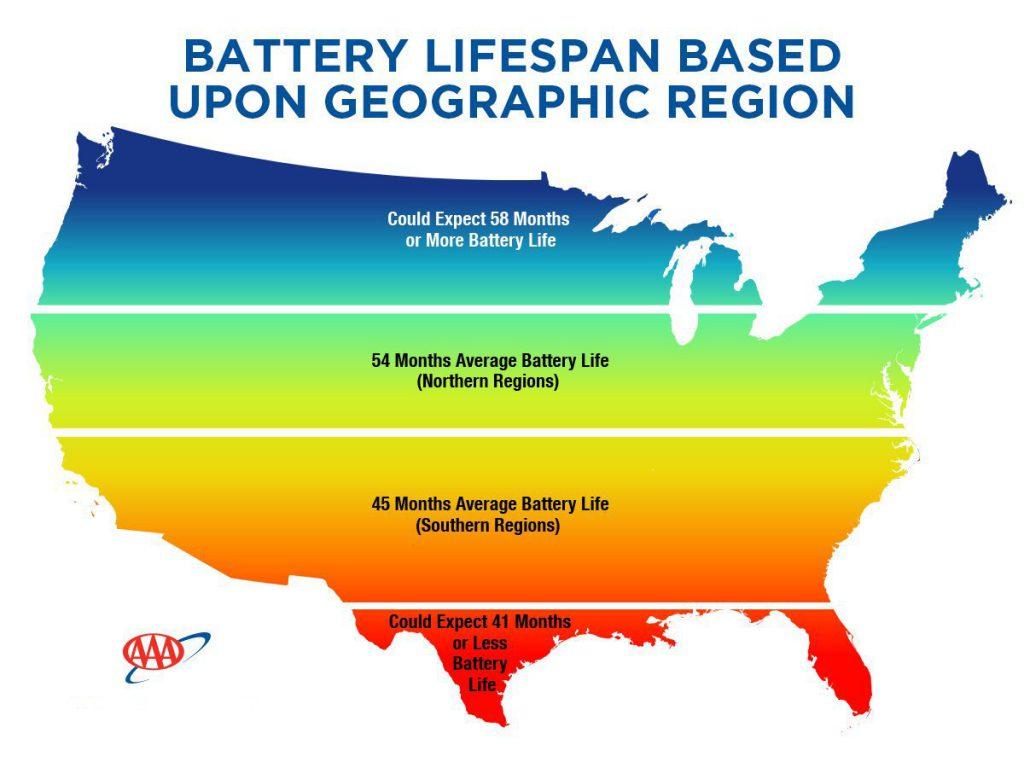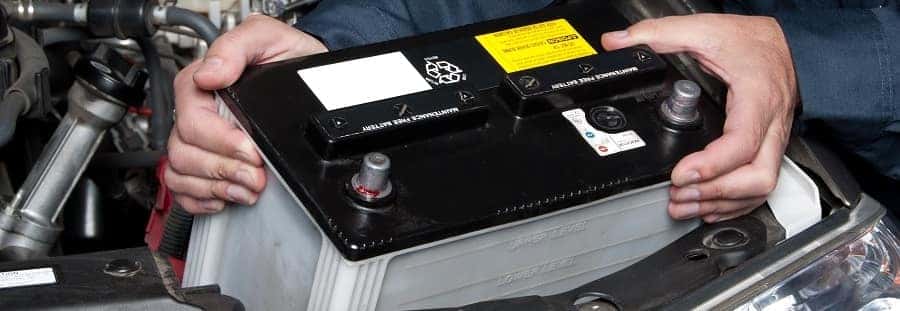The average lifespan of an automobile battery is three to five years. Regular maintenance can help extend their lifespan. Discover essential tips on maximizing your car battery life. Learn how proper maintenance and usage can extend your battery’s lifespan and save you money.
Car batteries are essential for powering your vehicle’s electrical components. They ensure your car starts and runs smoothly. Car batteries typically have a three- to five-year lifespan. Factors like driving habits, climate, and maintenance can affect their lifespan. Extreme temperatures shorten battery life, while regular checks and clean terminals extend it.
Watching for warning signs like the slow engine starts and dim lights are essential. Replacing your battery before it fails can prevent inconvenience. Always choose a high-quality battery that is compatible with your vehicle. Regular inspections by a professional can also help maintain optimal battery health.

The Heart Of Your Vehicle
Your automobile’s battery is its engine. It powers everything from the engine to the lights. Without a healthy battery, your car won’t start or run correctly. Understanding your car battery’s life and importance can save you from unexpected breakdowns.
The Critical Role Of Car Batteries
Car batteries are essential for your vehicle’s operation. They provide the electric current needed to start the engine. Once the engine runs, the battery supplies power to the electrical systems. These include the radio, lights, and air conditioning. A well-functioning battery ensures a smooth and reliable driving experience.
Symptoms Of A Failing Battery
Understanding the warning indicators of a failing automobile battery is crucial. By doing this, you may be able to stay off the roadside. Look out for these symptoms:
- Dim headlights: If your headlights are dimmer than usual, your battery might weaken.
- Slow engine crank: A slow engine crank means your battery struggles to provide power.
- Clicking sound when turning the key: If you hear a clicking sound, your battery could fail.
- Check engine light: This light can indicate battery problems.
- Corroded battery terminals: Corrosion can prevent the battery from charging correctly.
Regularly checking your battery and looking for these symptoms can save you from unexpected issues. Keeping your battery in good condition ensures your car runs smoothly and reliably.
Battery Lifespan Factors
Understanding the factors that affect a car battery’s lifespan is crucial. A longer battery life means fewer replacements and more savings. This section dives into critical elements impacting your battery’s length.
Impact Of Driving Habits
Your driving habits can significantly affect your car battery’s lifespan. Short trips under 20 minutes don’t give the battery enough time to recharge. This can cause the battery to die sooner. On the other hand, longer trips help the battery recharge fully.
If you often leave your car unused for long periods, the battery will naturally discharge. Idle cars can lose charge over time, reducing the battery’s lifespan. Regular driving helps maintain the battery’s health.
Temperature Effects On Battery Life
Temperature plays a vital role in your car battery’s health. The battery fluid may evaporate in scorching temperatures. This reduces the battery’s performance and lifespan. Conversely, low temperatures can impede the chemical processes occurring within the battery. This makes it harder for the battery to start your car.
To protect your battery from extreme temperatures, consider these tips:
- Park your car in a garage.
- Use a battery insulator.
- Check your battery regularly.
Maintaining a stable temperature around your battery can extend its lifespan.
| Factor | Effect on Battery |
|---|---|
| Driving Habits | Short trips reduce charge; long trips recharge fully |
| Temperature | Heat causes evaporation; cold slows chemical reactions |

Choosing The Right Battery
Choosing the correct car battery is crucial for your vehicle’s performance. A good battery ensures a smooth start and reliable operation. Let’s dive into the critical aspects of selecting the correct battery for your car.
Battery Types And Their Longevity
Car batteries come in different types. Every variety has unique performance traits and lifespans. Here’s a quick overview:
| Battery Type | Average Lifespan | Features |
|---|---|---|
| Lead-Acid | 3-5 years | Affordable, requires maintenance |
| AGM (Absorbent Glass Mat) | 4-7 years | Maintenance-free, longer life |
| Lithium-Ion | 10 years | Lightweight, high cost |
Lead-acid batteries are the most common. They are affordable but require maintenance. AGM batteries offer a longer lifespan and are maintenance-free. Lithium-ion batteries last the longest but are costly.
Compatibility With Your Vehicle Model
It’s essential to choose a battery that is compatible with your vehicle. Check your vehicle’s manual for battery specifications. Pay attention to these factors:
- Size: The battery should fit in the battery compartment.
- Voltage: Most cars use a 12-volt battery.
- Cold Cranking Amps (CCA): This measures the battery’s ability to start in cold weather.
- Reserve Capacity (RC): This indicates how long the battery can run the car if the alternator fails.
Ensure the battery size matches your vehicle’s compartment. Check the voltage requirement in the manual. Higher CCA is better for cold climates. RC is crucial for reliability in emergencies.
Proper Installation And Maintenance
Ensuring your car battery is installed correctly and maintained is crucial for longevity. Proper care can prevent unexpected failures and extend battery life. Let’s explore some key aspects of car battery maintenance.
Diy Vs. Professional Installation
Installing a car battery correctly is essential for its performance. You can hire an expert or do it yourself (DIY).
| DIY Installation | Professional Installation |
|---|---|
|
|
Opting for a professional is safer if you lack the necessary tools or knowledge. Incorrect installation can damage the battery and car.
Routine Checkups And Cleaning
Regular checkups and cleaning can significantly extend your car battery’s life. Here are some essential tips:
- Inspect the battery terminals for corrosion.
- Use a baking soda and water combination to clean the terminals.
- Make sure the battery is firmly positioned within its tray.
- Check the battery voltage with a multimeter.
- Top up the battery fluid if it’s a non-sealed battery.
A clean and well-maintained battery performs better and lasts longer. Regular checkups can help identify issues early.
Charging Practices For Longevity
To extend the life of your car battery, focus on proper charging practices. Charging your battery correctly ensures it lasts longer and performs better. This section covers effective charging techniques and common charging mistakes to avoid.
Effective Charging Techniques
Using the proper techniques can make a big difference in battery life. Here are some tips:
- Use an intelligent charger: A smart charger adjusts the charging rate automatically. It prevents overcharging.
- Charge in a cool place: Heat can damage the battery. Charge it in a cool, ventilated area.
- Follow the manufacturer’s instructions: Each battery is different. Always read and follow the instructions.
- Charge regularly: Do not let the battery discharge completely. Regular charging keeps it healthy.
- Check voltage levels: Use a voltmeter to ensure the battery is charging correctly. The ideal voltage is between 12.6 and 12.8 volts.
Avoiding Common Charging Mistakes
Some charging practices can harm your battery. Avoid these common mistakes:
- Overcharging: Overcharging can cause the battery to overheat and fail. Use a charger that shuts off automatically every time.
- Undercharging: Not charging the battery fully can lead to sulfation. Sulfation reduces battery capacity.
- Using the wrong charger: Different batteries need different chargers. Using the wrong one can damage the battery.
- Ignoring maintenance: Regular maintenance helps spot issues early. Clean the terminals and check the electrolyte levels often.
For a quick reference, here’s a table summarizing the do’s and don’ts:
| Do’s | Don’ts |
|---|---|
| Use a smart charger | Overcharge the battery |
| Charge in a cool place | Undercharge the battery |
| Follow instructions | Use the wrong charger |
| Charge regularly | Ignore maintenance |
| Check voltage levels | Expose battery to heat |

Credit: www.germaincars.com
When To Replace Your Battery
Maintaining the performance of your automobile depends on knowing when to replace the battery. A failing battery can leave you stranded and cause other electrical issues. Let’s explore the critical aspects of monitoring battery health and recognizing signs that indicate it’s time for a replacement.
Monitoring Battery Health
Regularly monitoring your battery’s health helps you avoid unexpected breakdowns. Check the battery voltage with a multimeter. A good battery should register about 12.6 volts when the engine is off.
- Inspect the battery terminals for corrosion. Clean them if needed.
- Look for leaks or swelling in the battery case.
- Check the battery’s age. Most batteries last 3-5 years.
Keep an eye on the battery indicator light on your dashboard. If it lights up, get the battery checked immediately.
Signs That Indicate Replacement Time
There are several indicators that your battery needs to be changed:
- Slow engine crank: The engine takes longer to start.
- Dim headlights: The headlights appear dimmer than usual.
- Frequent jump-starts: Needing to jump-start your car often.
- Electrical issues: Problems with power windows, radio, or lights.
If you notice these signs, test your battery or visit a mechanic. Replacing the battery immediately ensures your car runs smoothly and reliably.
| Battery Health Check | Action Needed |
|---|---|
| Voltage below 12.6 volts | Charge or replace |
| Corroded terminals | Clean terminals |
| Battery age over 5 years | Consider replacement |
| Leaking or swollen case | Replace immediately |
Recycling And Disposal
Car battery life eventually ends. Proper recycling and disposal of old car batteries are essential. This practice helps protect the environment and conserve resources.
Environmentally Friendly Disposal
Disposing of car batteries in an environmentally friendly way is crucial. Hazardous substances, including acid and lead, are found in batteries. These chemicals can leak into the soil and water. Proper disposal prevents this contamination.
Many recycling centres accept old car batteries. They have the facilities to handle and recycle them safely. Contact your local recycling centre to find out if they accept car batteries.
Battery Recycling Options
There are several options available for recycling car batteries:
- Auto Parts Stores: Many auto parts stores offer battery recycling services. They often provide discounts on new batteries when you recycle your old ones.
- Recycling Centers: Local recycling centers usually accept car batteries. They ensure safe disposal and recycling.
- Battery Retailers: Some battery retailers offer recycling services. They accept old batteries when you buy a new one.
- Manufacturer Programs: Many battery manufacturers have recycling programs. They provide information on where to drop off old batteries.
Recycling car batteries helps conserve resources. It also reduces the need for new raw materials. This practice supports a healthier environment.
| Recycling Option | Details |
|---|---|
| Auto Parts Stores | Offer recycling services and discounts on new batteries. |
| Recycling Centers | Accept car batteries for safe disposal and recycling. |
| Battery Retailers | Accept old batteries when you buy a new one. |
| Manufacturer Programs | Provide drop-off locations for old batteries. |
Make sure to choose an option that works best for you. By recycling, you contribute to a cleaner and greener planet.

Credit: carfromjapan.com
Innovations In Battery Technology
Car battery life eventually ends. Proper recycling and disposal of old car batteries are essential. This practice helps protect the environment and conserve resources.
Environmentally Friendly Disposal
Disposing of car batteries in an environmentally friendly way is crucial. Batteries contain harmful chemicals like lead and acid. These chemicals can leak into the soil and water. Proper disposal prevents this contamination.
Many recycling centres accept old car batteries. They have the facilities to handle and recycle them safely. Contact your local recycling centre to find out if they accept car batteries.
Battery Recycling Options
There are several options available for recycling car batteries:
- Auto Parts Stores: Many auto parts stores offer battery recycling services. They often provide discounts on new batteries when you recycle your old ones.
- Recycling Centers: Local recycling centers usually accept car batteries. They ensure safe disposal and recycling.
- Battery Retailers: Some battery retailers offer recycling services. They accept old batteries when you buy a new one.
- Manufacturer Programs: Many battery manufacturers have recycling programs. They provide information on where to drop off old batteries.
Recycling car batteries helps conserve resources. It also reduces the need for new raw materials. This practice supports a healthier environment.
| Recycling Option | Details |
|---|---|
| Auto Parts Stores | Offer recycling services and discounts on new batteries. |
| Recycling Centers | Accept car batteries for safe disposal and recycling. |
| Battery Retailers | Accept old batteries when you buy a new one. |
| Manufacturer Programs | Provide drop-off locations for old batteries. |
Make sure to choose an option that works best for you. By recycling, you contribute to a cleaner and greener planet.

Credit: www.toyotaofdanvers.com
Frequently Asked Questions
How Do I Know When My Car Needs A New Battery?
Your car needs a new battery if it struggles to start, has dim headlights, or shows a dashboard warning light.
What Is The Average Lifespan Of A Car Battery?
A car battery typically lasts 3 to 5 years. Factors like climate, usage, and maintenance can affect its lifespan. Regular checks and proper care extend battery life.
What Shortens Car Battery Life?
Frequent short trips, extreme temperatures, and leaving lights on can shorten car battery life. Ensure proper maintenance to extend lifespan.
Can A Car Battery Last 10 Years?
A car battery can last up to 10 years but typically lasts 3-5 years. Regular maintenance extends its lifespan.
Conclusion
Ensuring your car battery lasts longer is crucial for reliable vehicle performance. Regular maintenance, avoiding extreme temperatures, and intelligent driving habits can help. Pay attention to signs of wear and replace the battery when needed. Following these tips can maximize your car battery’s lifespan and ensure a smoother driving experience.

I am a battery specialist writer and blogger based in the USA & UK . I have been working with battery power energy for 3 long years and I give trips on low battery power problem and solutions . I have a lot of experience with battery power and I share them here.

